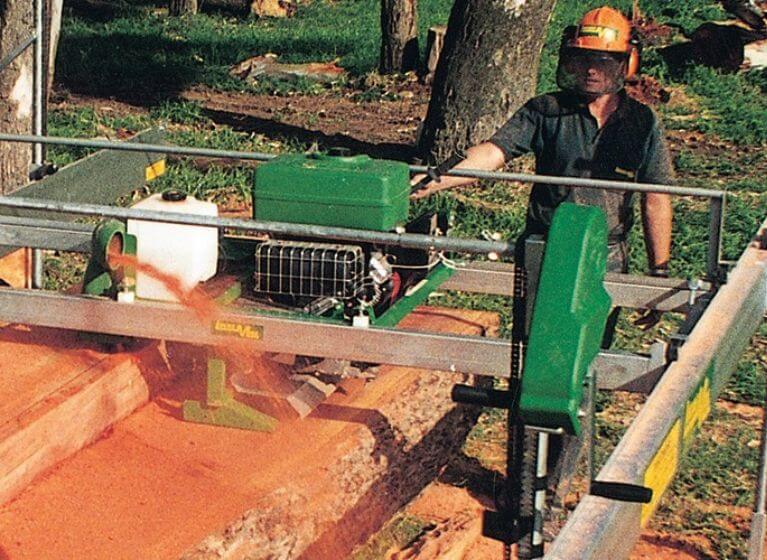Infringement
A patentee may sue for infringement of a standard patent as soon as the patent has been granted. If there is an existing or threatened infringement of a standard patent that is occurring before grant, infringement proceedings cannot be commenced until the patent has gone to grant, but can be in respect of an infringement occurring at any time after the day the patent application was published.
In order to establish infringement, a patentee must show that the alleged infringer has exploited an invention as defined in a claim of a valid patent.
It is usual to send to an infringer a letter before action is taken, giving to the alleged infringer the opportunity to provide appropriately worded undertakings that the infringing activity will immediately be terminated. If appropriate undertakings are not given, proceedings could be commenced before the Court.
Our attorneys are well versed in assessing infringement and working with litigators to enforce patents.
How do I tell if someone is infringing my patent?
To tell whether a patent is infringed, reference is made to the claims of the granted patent. The claims usually appear at the end of a patent specification in the form of numbered paragraphs. If an unauthorised person makes a product or uses a method that falls within the words of at least one claim of the patent then that person will infringe the patent. Assessment of infringement can be a highly skilled analysis and our attorneys are able to advise should the need arise.
Challenging patents of concern before the Patent Office
Filing a notice of assertion of invalidity
Filing a notice of assertion of invalidity is an option to present the Patent Office with prior art relevant to a pending application. The Patent Office will then consider this material in their usual examination process. This notice may be filed on a standard patent after publication of the application and prior to its grant.
Patent oppositions
Patent oppositions provide a mechanism to oppose various possible actions by the Patent Office on a patent or patent application. The most common oppositions are oppositions to the grant of a patent and oppositions to amendment.
Patent oppositions require different expertise to patent drafting and prosecution. Our attorneys have proven expertise in conducting patent oppositions.
There are two types of patent oppositions – substantive and procedural oppositions. Substantive oppositions include oppositions to the grant of a patent and oppositions to the grant of an extension of term of a patent for a pharmaceutical substance. Procedural oppositions include oppositions to amendments, extensions of time and grants of a licence.
The opposition procedure allows third parties, with the assistance of expert evidence and detailed arguments, to request the Patent Office to reconsider a decision relating to a patent or patent application. An opposition can be an effective way to prevent an undesirable action by the Patent Office. However, an opposition can only be filed in a narrow time period, usually between publication of the Patent Office intention to make a decision and implementation of that decision.
Filing an opposition is not always the best offensive strategy. Each situation has its own unique circumstances and there may be other more appropriate options.
Some of the typical factors to take into account in deciding whether to oppose the grant of a patent include:
- The commercial impact of allowing the patent to proceed to grant unopposed. For example, what would be the impact of infringement proceedings against you, both financially and in relation to public or stakeholder relations?
- The relationship between you and the patent applicant. Is the applicant likely to see you as a competitor, perhaps increasing the risk of adverse action, or does the applicant operate in a different area, increasing the chance of either no action being taken against you or the prospect of a favourable licence agreement?
- The prospects of success in the opposition. All oppositions involve uncertainty. However, a careful analysis in advance can inform the decision of the most appropriate strategy to pursue.
- The cost. Many oppositions involve substantial cost, including the cost of obtaining expert evidence. How do the options to adjust the approach to evidence and argument to reduce costs affect the prospects of success?
What to do if your patent is opposed?
The key questions to ask are:
- What is the value of the patent application to your business?
- How does that value compare with the anticipated cost of defending the opposition?
The answers to these questions will inform the vigour with which the opposition is defended, if at all, or whether the option of settlement with the opponent may be best.
Throughout the opposition process, remember what was considered to be the underlying reasons for the patent’s value. This will influence the decisions as to what aspects of the opposition should be given the most careful consideration and also influence the decision whether an amendment is appropriate. Winning the opposition is of little merit if the consequence is severely diminishing the commercial value of the patent.
Re-examination
A frequently considered alternative to lodging an opposition is to request re-examination of a patent or a patent application, for example due to newly identified prior art.
The re-examination process is ex-parte: the person requesting examination files its materials, following which the Patent Office and the applicant or patentee consider the materials and decide on any required responsive action, without further input from the requestor.
Re-examination is most commonly requested for granted patents.
Alternatives to Patent Office challenge
Revocation, taking a licence or acquiring the patent
It is possible to apply to the court to invalidate a patent by revocation. In some circumstances, this is preferable to opposition. Also, a cross-claim for revocation can be made against the patent should the patentee move to enforce the patent against you.
Other defensive actions that may be taken include searching for prior art for use should the patentee seek to enforce its patent, examining design around options, or investigating the option of acquiring the patent or a licence.
Litigation support
A number of our attorneys are specialists in providing litigation support to patent litigators. If you seek to enforce your patent against an infringer, to defend against infringement proceedings, seek revocation of a problem patent or to defend against revocation proceedings, you will need solicitors to represent you before the court. In our experience, the outcome of the court proceedings can be significantly improved by including in the litigation team patent attorneys with specialist expertise in patents and the patented technology. The solicitors and attorneys have different strengths and different ideas. The best strategies arise from the use of both.
Our attorneys are highly experienced in supporting litigators during patent litigation and have been involved in many of the key cases in Australia. Our team is also skilled at coordinating as part of multijurisdictional enforcement or defence where it is necessary for a multinational coordination of strategy.
Our expertise in action
Lucas Mill, an Australian manufacturer, succeeded before the High Court in China for patent infringement, which was preceded by two prior rounds in the Qingdao Intermediate People’s Court and the Chinese Patent.
Lucas Mill discovered an imitation of its patented flagship product, a portable sawmill, being sold online and took immediate action for infringement of its Chinese patent against the Chinese manufacturer, Shandong Shuanghuan Machinery Limited.
In consultation with Lucas Mil, FPA formed a highly successful trans-cultural and cross-disciplinary team with a Chinese law firm and specialist patent litigators, JunHe.
This landmark case aired on ABC’s Landline, which featured FPA Principal, Tracey Hendy.
The ruling reinforces the importance of robust intellectual property protection and showcases the potential for Australian companies to compete and win on the global stage.
Searching and watching
Our attorneys are all trained in the formulation of searching strategies, whether for the purpose of determining the state of the art relating to an invention, competitor landscape searching or freedom to operate (FTO) analysis. At the option of our clients, we can perform searching in-house or contract searching out to any of a variety of specialist searching agents in our network, either in Australia or overseas.
Infringement & FTO searching
Prior to launching a product in the Australian market it may be prudent to conduct a freedom to operate (FTO) search, also known as an infringement search, of the Australian patent register. We can perform patent infringement searches based on subject matter classification and keywords relevant to the invention. In view of the search results, we would be able to provide you with appropriate advice, including infringement opinions, validity opinions relating to the prior art located and the availability of suitable design-around options.
Competitor monitoring services
We can conduct periodic searching of patent databases to monitor the filing activities of your key competitors. Monitoring is also the best way to identify the window of opportunity for filing an opposition to a competitor’s patent actions.
In addition to monitoring patent activity of specific competitors, we can monitor patent developments in a particular technical field. A search of this type may be used to keep abreast of new products or new competitors that may be entering the Australian market or a specific market segment.



